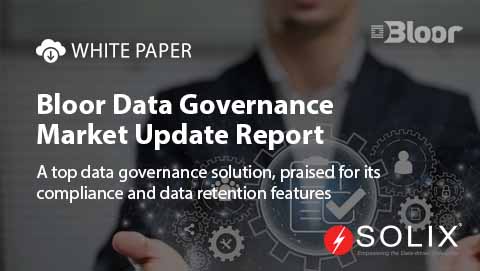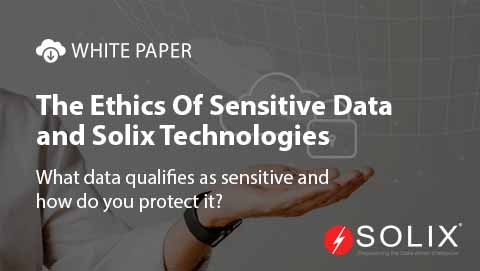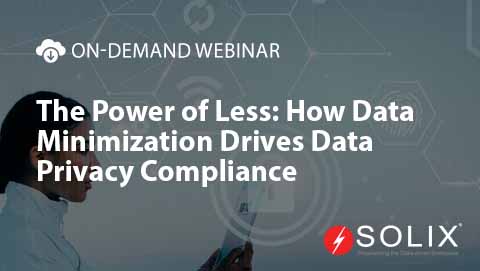Data Catalog Review
If youre diving into the overwhelming sea of data management, youre likely wondering What actually makes a data catalog effective A solid data catalog is instrumental for organizations aiming to harness the full potential of their data, and a careful data catalog review can shed light on its strengths and weaknesses. This blog post dives deep into the world of data catalogshow they function, what to look for in a quality review, and how Solix solutions can enhance your data management strategy.
In todays data-driven age, having a reliable repository of your data assets is non-negotiable. But without a thorough review, you might miss key functionalities that could elevate your data governance and analytics. Lets explore how a well-conducted data catalog review can help inform your data strategy and drive better business outcomes.
Understanding Data Catalogs
At its core, a data catalog acts as a centralized repository containing metadata that describes your data assets. Think of it as a library, but instead of books, it houses data sets, databases, reports, and the like. Each entry typically includes important metadata such as data type, source, usage policies, and whos responsible for maintaining it. A well-designed catalog can lead your team to the right data swiftly and, ultimately, enhance productivity.
But why is it critical to conduct a data catalog review In my experience, a review can help identify gaps in the catalogs coverage, usability issues, and areas for improvement, which can be particularly useful if your organization has undergone significant changes or growth recently.
Key Components of an Effective Data Catalog
When evaluating a data catalog, several aspects deserve your attention. Here are the key components I suggest you focus on during a review
- Metadata Quality Ensure that the metadata is comprehensive and accurate. High-quality metadata should provide sufficient context to help users understand the data sets.
- User-Friendly Interface A straightforward, intuitive interface helps users find the data they need quickly. Its essential that even non-technical users can navigate the catalog without a steep learning curve.
- Search Functionality An effective search feature allows users to employ filters, keywords, or even natural language queries to find relevant data.
- Data Governance Features Good data catalogs support data governance, enabling organizations to set policies and access controls for their data assets.
- Collaboration Tools Features that allow users to share information and insights foster a collaborative environment and can enhance data quality over time.
The Importance of User Feedback
In my experience, user feedback is invaluable during a data catalog reviewEngaging with your team members about their experiences can reveal usability issues you might not have noticed. For example, I once worked with an analytics team that felt overwhelmed by the sheer volume of data available, leading to analysis paralysis. By incorporating their feedback into the review process, we were able to streamline the catalogs layout and prioritize key datasets, significantly improving their workflow.
Actionable Recommendations
Incorporating actionable recommendations from your data catalog review can yield immediate benefits. Here are a few practical steps to consider
- Regular Updates Make it a point to regularly update your catalog to reflect changes in data sources or structures. This keeps the catalog relevant and useful.
- Training Sessions Conduct training sessions for team members to familiarize them with the features of the catalog. An informed team is more likely to leverage the catalog effectively.
- Implement Feedback Iteratively Establish a feedback loop where users can make suggestions for improvements. Implement these iteratively to keep your catalog dynamic and responsive to users needs.
How Solix Can Assist in Your Data Catalog Review
When it comes to enhancing your organizations data management strategy, Solix offers solutions that can facilitate a comprehensive approach during your data catalog review. Specifically, the Solix Data Governance solution provides you with tools to streamline your catalog, ensuring accurate metadata, robust search functionalities, and effective collaboration features. With Solix, you can create a responsive data environment that integrates seamlessly with your existing systems and helps you manage governance effectively.
Dont hesitate to reach out to Solix for further consultation or if you have specific questions about optimizing your data catalog. Whether youre just starting out or looking to refine an existing system, Solix expertise can guide you through the complexities of data management. Call them at 1.888.GO.SOLIX (1-888-467-6549) or visit here for more personalized information.
Wrap-Up
A well-executed data catalog review is essential for any organization that wants to maximize the value of its data. By focusing on key components like metadata quality, user interface, and ongoing user feedback, you can significantly enhance the utility of your data catalog. Also, dont forget the vital role that Solix can play in this journey. Their tools and expertise can knit together a framework that helps you manage, govern, and leverage your data efficiently.
About the Author
Hi, Im Elva! I have years of experience in data management and have seen firsthand how a thorough data catalog review can transform an organizations relationship with data. Im passionate about empowering others to leverage their data assets effectively while promoting best practices in data governance.
Disclaimer The views expressed in this blog are my own and do not represent the official position of Solix.
Sign up now on the right for a chance to WIN $100 today! Our giveaway ends soon‚ dont miss out! Limited time offer! Enter on right to claim your $100 reward before its too late!
-

-

-
 On-Demand Webinar
On-Demand WebinarThe Power of Less: How Data Minimization Drives Data Privacy Compliance
Watch On-Demand Webinar
